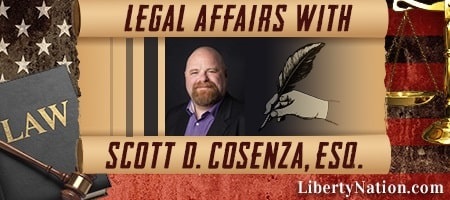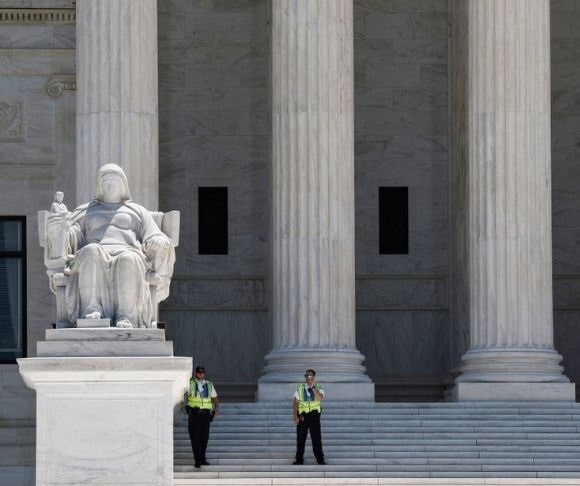Can a group of crybullies force a baker to make a cake celebrating a gay wedding if he believes God does not permit same-sex marriage? That issue was before the Supreme Court in the 2018 case, Masterpiece Cakeshop. We don’t know the answer because the Court took the coward’s way out, escaping a ruling on the claim itself. On Dec. 5, the Supreme Court will take a step closer to resolving the freedom of speech question. This time in the form of a Christian website designer who wishes to design wedding websites exclusively for opposite-sex couples. The case is 303 Creative LLC v. Elenis.
Are Christians Allowed Freedom of Speech Too?
Lorie Smith is the owner of 303 Creative, and the Coloradan wants to get in on the popular trend of websites commissioned by engaged couples. The sites may include event information, RSVP tracking, and gift registries. Ms. Smith believes God ordains marriage as only valid between a man and a woman. She wants to make this belief clear in her marketing materials and refuse service to any same-sex couples who would hire her. Such advertisements would, however, hold her liable under the Colorado Anti-Discrimination Act. So, Smith sued, arguing the Act violates her First Amendment rights of freedom of speech and the free exercise of her religion.
 The Colorado law adds sexual orientation to the list of factors, including race, sex, and national origin, that one may not use to deny a public accommodation. The law describes a public accommodation as “any place of business engaged in any sales to the public and any place offering services, facilities, privileges, advantages, or accommodations to the public…” It is universally understood that a prospective wedding vendor may not decline to service a customer based on their sexual orientation in jurisdictions like Colorado, where such practice is forbidden. Ms. Smith and the Masterpiece Cakeshop baker don’t claim the right to do so; they instead claim the right to refuse to create messages that violate their sincerely held religious beliefs.
The Colorado law adds sexual orientation to the list of factors, including race, sex, and national origin, that one may not use to deny a public accommodation. The law describes a public accommodation as “any place of business engaged in any sales to the public and any place offering services, facilities, privileges, advantages, or accommodations to the public…” It is universally understood that a prospective wedding vendor may not decline to service a customer based on their sexual orientation in jurisdictions like Colorado, where such practice is forbidden. Ms. Smith and the Masterpiece Cakeshop baker don’t claim the right to do so; they instead claim the right to refuse to create messages that violate their sincerely held religious beliefs.
Always a Bridesmaid….
In the bakery example, what that means is that owner Jack Phillips would refuse to create a cake and decorate it to celebrate a same-sex wedding but would gladly sell the same customer all the ready-made baked goods he offered for the same occasion. The distinction between the two transactions is that in the first instance, the vendor must use their creative powers to celebrate the union, which they argue amounts to compelled speech. In the second example, the business simply sells inventory offered for sale, so the state is not forcing them to create or speak against their will.
In Masterpiece Cakeshop, the Supreme Court ruled that the Colorado Civil Rights Commission was so hostile to Phillips’ religious expression that he should win his case based on the Commission’s malfeasance. The justices never reached the merits of the First Amendment claims against the law itself. Will they issue a bright-line ruling and bring clarity to the issue this time around? Initial signs are not encouraging. Smith Claims both her right to freely practice her religion and her right to free speech are infringed by Colorado’s law. The Supreme Court, however, will not consider the free-exercise component in this case and has limited arguments exclusively to the free speech question.
 That means the justices have said they will not examine whether the First Amendment gives her the religious right to announce her preferences and accept or decline commissions based on her faith. Instead, they will only decide whether she has the free speech right to speak her mind or stay silent to protect against what amounts to compelled speech, which the First Amendment has prohibited.
That means the justices have said they will not examine whether the First Amendment gives her the religious right to announce her preferences and accept or decline commissions based on her faith. Instead, they will only decide whether she has the free speech right to speak her mind or stay silent to protect against what amounts to compelled speech, which the First Amendment has prohibited.
What a Difference a Day Makes
In the Masterpiece Cakeshop ruling, Justice Thomas wrote separately to leave no doubt he found the Commission’s prosecution of creators who refuse to accommodate gay marriage celebrants to be illegal. He quoted another case, saying, “[T]he fact that [the social acceptance of homosexuality] may be embraced and advocated by increasing numbers of people is all the more reason to protect the First Amendment rights of those who wish to voice a different view.” Justice Gorsuch signed on to Thomas’s opinion.
Justice Sotomayor took the opposite view in Masterpiece Cakeshop. She signed her name to Ruth Bader Ginsburg’s opinion, the only dissent in the case. Ginsburg argued it didn’t matter that Colorado officials were openly hostile to the baker’s religion. She contended that forcing the baker to make the cake for the same-sex wedding was not problematic because baking and decorating a cake was not expression, within the bounds of the First Amendment. Will Sotomayor change her mind when the vendor is a web designer and author instead of a baker? Justice Ginsburg was replaced on the court by Justice Amy Coney Barrett. Oral arguments begin at 10 a.m.




